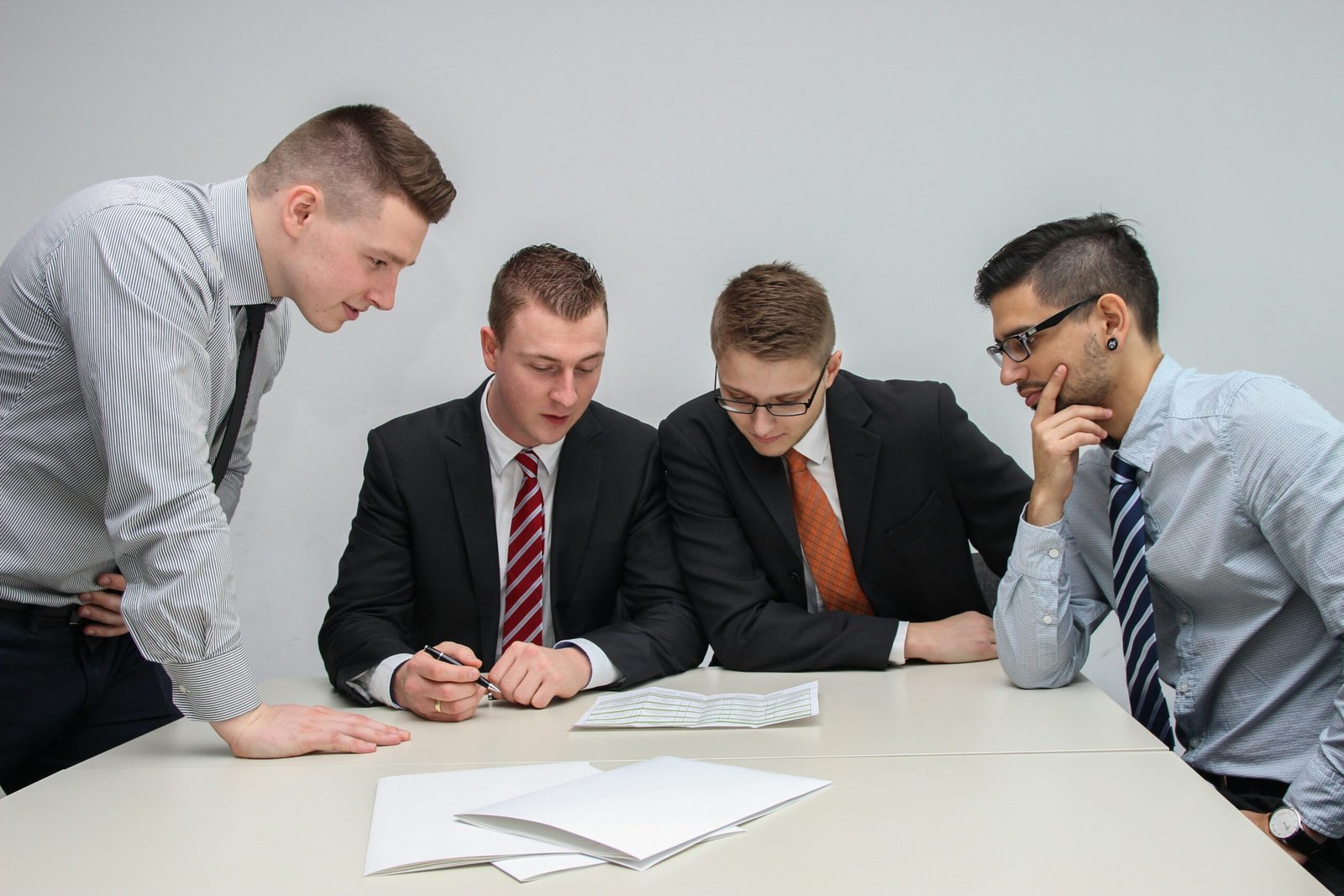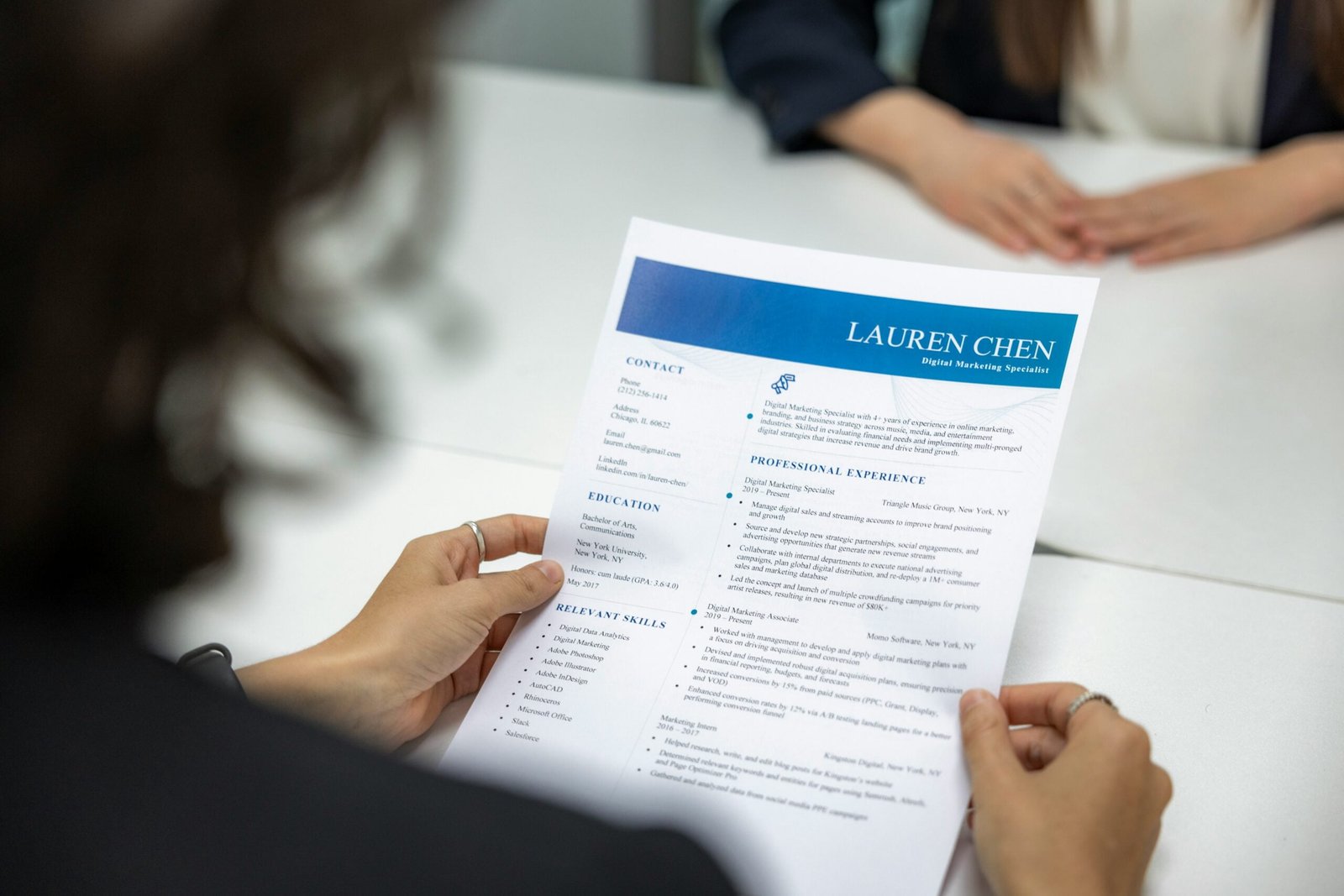The Importance of Body Language in Interviews
Body language plays a pivotal role in job interviews, serving as a silent communicator that can either enhance or undermine what is being said verbally. Nonverbal cues, such as posture, eye contact, and facial expressions, can either complement or contradict verbal communication, making it essential to be mindful of these signals. Effective nonverbal communication can significantly reinforce the messages conveyed through words, thereby establishing a stronger connection with the interviewer.
First impressions are formed within the first few seconds of meeting someone, and body language is a critical component of this initial assessment. A confident handshake, upright posture, and consistent eye contact can convey confidence and readiness, while slouching, avoiding eye contact, or fidgeting may suggest nervousness or a lack of interest. These immediate, nonverbal signals can set the tone for the remainder of the interview and influence the interviewer’s perception of the candidate’s suitability for the role.
Psychological theories, such as Albert Mehrabian’s communication model, emphasize that a significant portion of communication is nonverbal. According to Mehrabian, 55% of communication is conveyed through body language, 38% through tone of voice, and only 7% through actual words. This underscores the importance of mastering body language to ensure that the intended message is effectively received. Understanding the psychological underpinnings of body language can help candidates become more aware of their own nonverbal cues and how they might be interpreted by others.
Mastering interview body language can enable candidates to project confidence, demonstrate engagement, and build rapport with the interviewer. By aligning nonverbal signals with verbal communication, candidates can create a coherent and compelling narrative that enhances their candidacy. As such, paying attention to body language is not merely an add-on to verbal preparation but a fundamental aspect of presenting oneself effectively in an interview setting.
Key Nonverbal Signals to Convey Confidence and Competence
Body language plays a critical role in interviews, often speaking louder than words. To project confidence and competence effectively, it is essential to master key nonverbal signals. One of the most crucial aspects is maintaining eye contact. Consistent eye contact indicates engagement and interest, while sporadic or avoiding eye contact can be perceived as evasiveness or lack of confidence. For example, when responding to a question, maintain eye contact with the interviewer to show that you are attentive and self-assured.
The importance of a firm handshake cannot be overstated. A firm handshake conveys confidence and professionalism, setting the tone for the rest of the interview. Conversely, a limp handshake can suggest uncertainty or disinterest. Practice your handshake to ensure it is neither too weak nor overly forceful, striking a balance that communicates assurance.
Posture is another vital element in nonverbal communication. Sitting up straight with shoulders back exudes confidence and attentiveness. Slouching or leaning back, on the other hand, can signal a lack of interest or motivation. Ensure that your posture reflects your enthusiasm and readiness to engage.
Facial expressions also play a significant role in conveying your emotions and attitude. A genuine smile can be incredibly impactful, portraying warmth and approachability. Be mindful of your expressions throughout the interview, as frowning or appearing disinterested can negatively affect the interviewer’s perception of you. Aim to maintain a pleasant and open demeanor.
Lastly, appropriate hand gestures can enhance your verbal communication, making you appear more dynamic and engaged. Gestures should be natural and purposeful, avoiding excessive movements that can be distracting. For instance, using hand gestures to emphasize key points can underscore your confidence and help illustrate your thoughts more clearly.
By mastering these nonverbal cues—eye contact, a firm handshake, confident posture, positive facial expressions, and purposeful hand gestures—you can effectively convey confidence and competence during an interview, leaving a lasting positive impression on your potential employer.
Common Body Language Mistakes and How to Avoid Them
In the high-stakes environment of an interview, nonverbal communication plays a pivotal role in how candidates are perceived. Common body language mistakes can inadvertently undermine the impression you intend to make, diminishing your chances of success. One frequent error is fidgeting, which can signal nervousness or a lack of confidence. To counteract this, focus on maintaining stillness and controlled movements. Practice sitting with your hands resting naturally in your lap or on the table to project calmness and composure.
Crossing arms is another problematic gesture often interpreted as defensiveness or closed-off behavior. Instead, opt for open body language by keeping your arms relaxed at your sides or using them gently to emphasize points during the conversation. This approach communicates openness and receptiveness, key traits interviewers look for in potential hires.
Poor eye contact can also negatively impact your interview performance. Avoiding eye contact may suggest a lack of confidence or disinterest. It’s essential to strike a balance between maintaining eye contact and looking away occasionally to avoid staring. Practicing this balance can help you appear more engaged and trustworthy.
Nervous habits, such as tapping your foot or playing with your hair, can distract interviewers and detract from your professionalism. These habits often stem from anxiety, so becoming aware of them is the first step to mitigating their impact. Techniques such as deep breathing exercises and mindfulness can help manage interview anxiety, allowing you to stay focused and present.
Preparation and self-awareness are key to avoiding these common pitfalls. Conduct mock interviews with a friend or career coach to receive feedback on your body language. Recording yourself can also provide valuable insights into your nonverbal cues, enabling you to make necessary adjustments. By refining your body language, you can enhance your overall interview performance and make a lasting, positive impression.
Practicing and Perfecting Your Body Language
Mastering interview body language is a critical component of a successful job interview. To ensure your nonverbal communication conveys confidence and professionalism, it’s essential to practice and refine your body language through various methods. One effective strategy is conducting mock interviews. Partner with a friend, mentor, or career coach to simulate the interview environment. This practice helps you become more aware of your gestures, posture, and facial expressions, allowing you to make necessary adjustments.
Another valuable technique is video recording yourself during these mock interviews. Reviewing the footage enables you to observe your nonverbal communication from an objective perspective. Pay attention to your eye contact, hand movements, and overall demeanor. Identify areas for improvement and work on eliminating any negative habits, such as fidgeting or slouching, that might undermine your confidence.
Seeking feedback from friends, mentors, or professional coaches is also crucial. They can provide constructive criticism and offer insights you might not have considered. External feedback can be instrumental in fine-tuning your body language and ensuring it aligns with the message you intend to convey.
In addition to these practical exercises, managing anxiety and staying calm are vital for maintaining positive body language under pressure. Breathing exercises can be highly effective. Practice deep breathing techniques, such as inhaling slowly through your nose, holding your breath for a few seconds, and exhaling gradually through your mouth. This helps reduce anxiety and promotes a calm, composed demeanor.
Visualization is another powerful tool. Before the interview, visualize yourself in the interview setting, performing confidently and effortlessly. Imagine your body language exuding assurance and poise. This mental rehearsal can significantly impact your actual performance, helping you stay composed and focused during the interview.
By incorporating these strategies into your interview preparation, you can enhance your nonverbal communication skills, project confidence, and leave a lasting positive impression on your potential employers.



